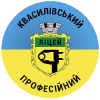
Vocational excellence
High-quality education and training driving skills, innovation and regional development.
Vocational excellence refers to high-quality education and training that values diverse backgrounds and talents, while ensuring relevance to the world of work. Extending beyond job-specific training, vocational excellence embraces a broader approach to skills provision, addressing innovation, local and regional development, lifelong learning and smart specialisation.
The concept of vocational excellence promoted by the EU is characterised by a holistic learner-centred approach in which vocational education and training (VET):
- is an integrated part of skills ecosystems, contributing to regional development, innovation, smart specialisation and cluster strategies, as well as to specific industrial ecosystems.
- is part of knowledge triangles, working closely with other education and training sectors, the scientific community, and businesses.
- enables learners to acquire both job-specific and key competences through high-quality provision that is underpinned by quality assurance.
- builds innovative forms of partnerships with the world of work and is supported by the professional development of training staff, innovative teaching methods, learner and staff mobility, and VET internationalisation strategies.
What are Centres of Vocational Excellence (CoVEs)?
Centres of excellence in vocational education and training are vocational institutions recognised for excellence in identifying and imparting relevant, high-quality, specialised technical skills. With their contribution to regional skills strategies, they promote employment and regional development. They work closely with employers, including small and medium-sized enterprises, to foster innovation, applied research, entrepreneurship and reskilling.
CoVEs are:
- attractive to learners, offering flexible, personalised learning pathways, up-to-date technology, and a fast track into employment and higher education.
- inspirational for teachers, trainers and managers, offering models of advanced practice in teaching, teacher training, organisational development and leadership.
- compelling for policymakers, demonstrating how greater autonomy and cooperation can drive continuing improvement of education and training systems.
CoVEs play a key role in the Union of Skills by supporting lifelong learning and the free movement of workers. Their impact is now spreading worldwide as similar initiatives are established beyond Europe.
What does the ETF do to support the development of CoVEs?
The ETF launched the ETF Network for Excellence (ENE) in 2020 to foster collaboration and share ideas, practices and experiences among CoVEs at national and international levels. Since then, the network has steadily grown and is open to CoVEs, VET providers, institutions and stakeholders committed to advancing excellence in VET.
The ETF also provides policy advice to help countries establish or strengthen CoVEs, focusing on system-level design and clarifying their role, tasks and strategic operational development.
Within the EU-funded Internationalising Vocational Excellence project, the ETF developed the International Self-Assessment Tool for Centres of Vocational Excellence (ISATCOVE). This digital platform enables VET centres and providers to benchmark their activities against European standards of vocational excellence, guiding them through a structured journey of self-assessment and continuous improvement.























